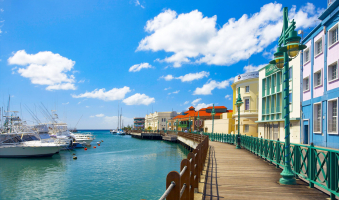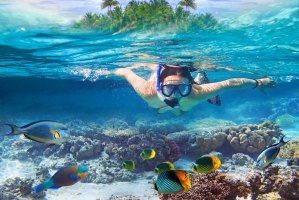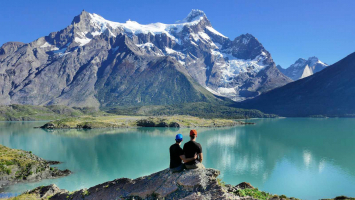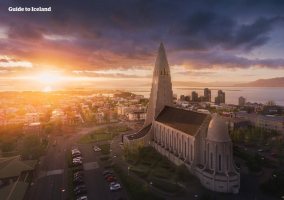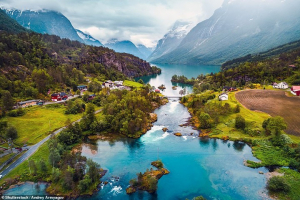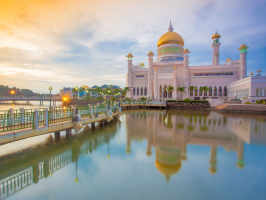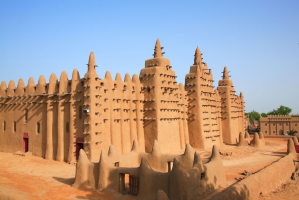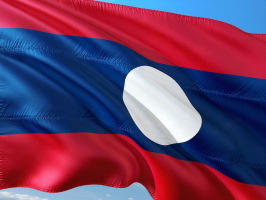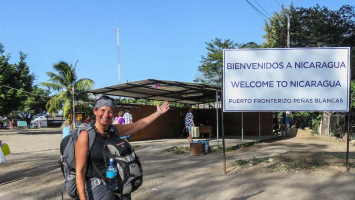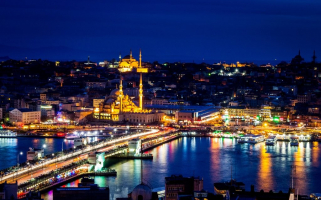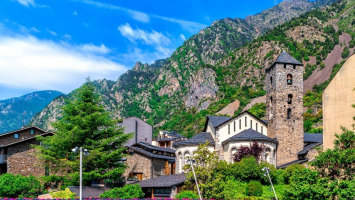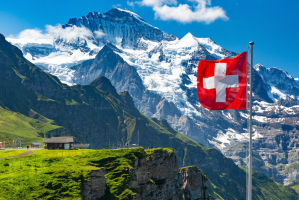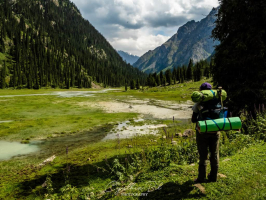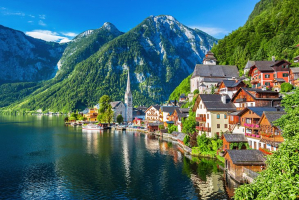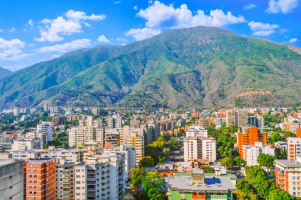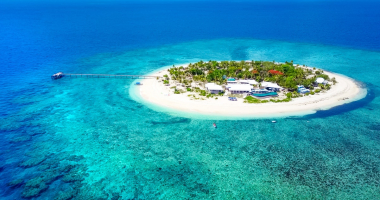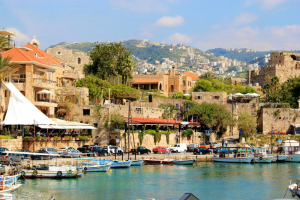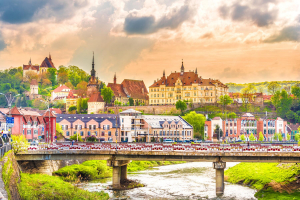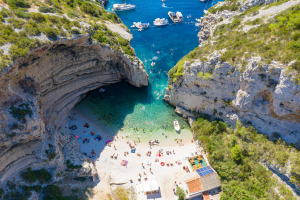Top 10 Things about Singapore You Should Know
Singapore is one of the world's tiniest countries to visit, but don't let that deceive you; it's also a really fascinating location to explore, especially if ... read more...you're there for the first time. On the surface, Singapore appears to be nothing more than a gleaming collection of high-rise apartment and corporate buildings, but once you get past that, you'll understand why you need to visit (or return) very soon. To get you started, here are some Things about Israel You Should Know.
-
Singapore is well-known for its year-round warmth. Many visitors, on the other hand, are unaware that it is the high humidity levels, not the tropical temperatures, that makes it so miserable. This is definitely one of the top Things about Singapore You Should Know. Entering the Lion City is like stepping into a sauna. A sauna that is open 24 hours a day throughout the entire island.
For visitors to Singapore, this entails a variety of things. Because you'll be sweating a lot, you'll need to stay hydrated all the time. Every half hour, you should clean up with a tiny towel or something similar. It's also a good idea to keep an extra set of clothes in your daypack. Please take things carefully if you're unfamiliar with tropical weather. The tropical climate depletes your body in a variety of ways, most of which go unnoticed. You don't want to have to go to the doctor while you're here.
Even if you're used to tropical temperatures, it's important to come dressed in light, comfortable clothing. T-shirts and flip-flops are ubiquitous among Singaporeans. Shorts are also acceptable. Unless you're visiting a house of worship, that is. Also, if you're going to a place with a dress code, make sure you leave time in your schedule to return to your hotel and change. Our well-functioning transportation systems make this possible.
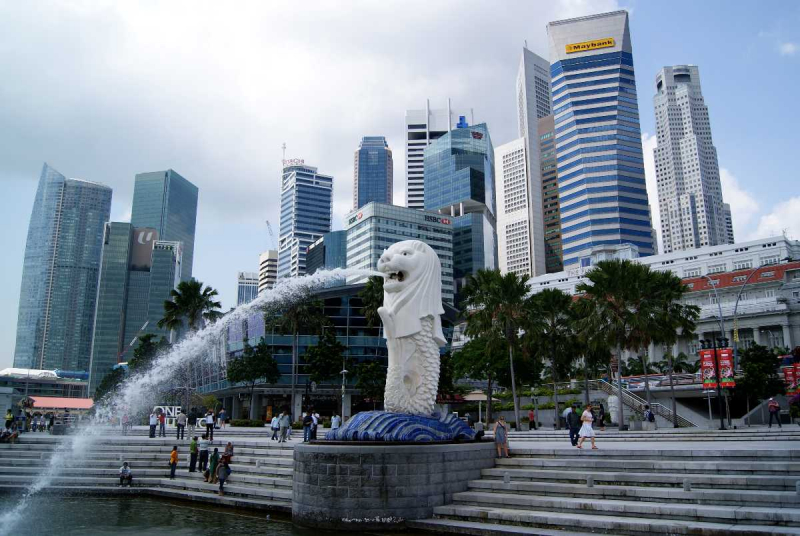
holidify.com 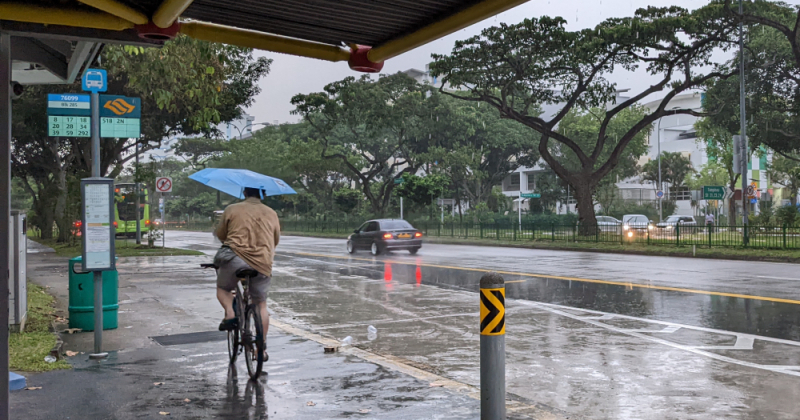
mothership.sg -
Singapore's duty-free (on arrival) restrictions are strict, especially when it comes to cigarettes. This is definitely one of the top Things about Singapore You Should Know. What's more important to know is that tobacco gets no preferential treatment, regardless of where you're traveling from. Prepare to be taxed if you purchase a carton at your departure point or during your flight.
When it comes to alcohol, the rules are less stringent. Travelers are allowed to bring up to two liters of alcohol in various combinations into the country. This could be 1 liter of wine and 1 liter of beer, for example, or vice versa. 1 liter of spirits and 1 liter of beer/wine might alternatively be used. Narcotics of any kind, including soft drugs and marijuana, are obviously illegal. Don't even consider it.
You should be aware of the following additional alcohol concession conditions:
- You must be at least 18 years old.
- You've been away from Singapore for 48 hours.
- Not be arriving from Malaysia
- All of the alcohol you have with you is for personal consumption only, not for selling.
- Singapore does not prohibit you from bringing alcohol with you.
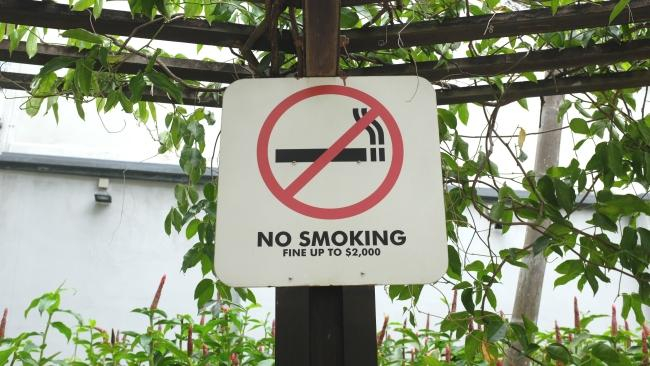
escape.com.au 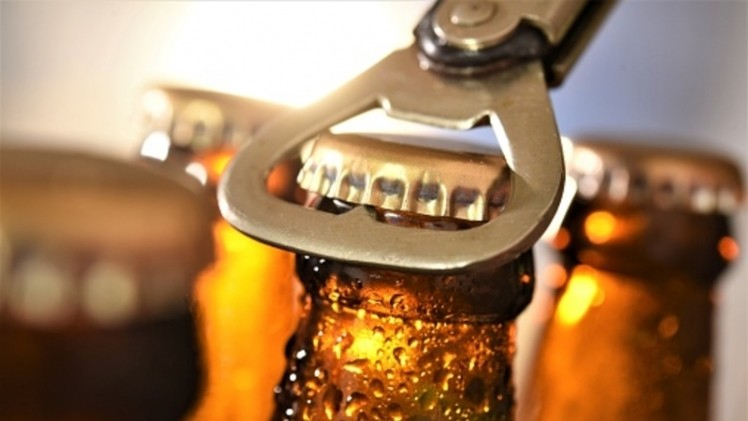
foodnavigator-asia.com -
Taxis in Singapore are required by law to use a meter. If a taxi driver tries to negotiate a special "package pricing" with you, you should immediately walk away. Due to a plethora of additional fees, the final fare for each ride could also go up quickly. Surcharges range from highway tolls to airport fees, peak-hour costs, and the infamous 50% midnight surcharge between 12 a.m. and 6 a.m.
Some levies have also climbed dramatically in recent years. In late 2022, for example, all pick-ups at Changi airport will be subject to an eight-dollar tax. To summarize, if you're on a budget in Singapore, stick to the metro and buses. Also keep in mind that private-hire automobile firms like as Grab have recently increased their rates significantly, particularly during busy hours. Using these services is unlikely to result in substantial savings.
On the eves of significant public holidays, the MRT always runs till early in the morning. On New Year's Eve, for example, it is open until at least 2 a.m. Consider taking the night buses on weekends if you're a night owl. For any ride, these services charge a minimal flat price. One of the services is appropriately dubbed the Nite Owl. (These services will operate between 2330/0000 and 0200 hours as of 2022.)
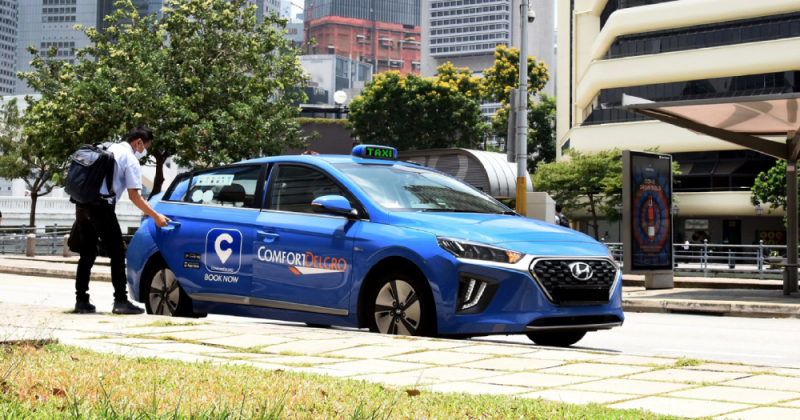
mothership.sg 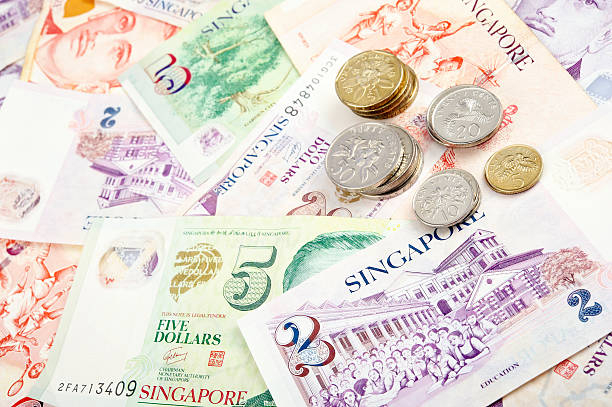
istockphoto.com -
Is it safe to travel to Singapore? Absolutely. This city-state has long been regarded as one of the safest in the world, making it ideal for solitary female travelers. However, this does not imply that we are crime-free. Scams and drunken brawls are the most typical risks to be aware of for visitors. This is definitely one of the top Things about Singapore You Should Know.
In the instance of the latter, a surprising number of recent incidents have included drunk passengers assaulting taxi drivers. If you come across such an occurrence while visiting Singapore, please call the police at 999 right once.
And if you're unfortunate enough to be in a bar and someone gets boisterous, don't panic; simply leave as soon as possible. Before you ever walked through the door, the staff would have phoned for assistance. Finally, taking photos and recordings of such incidents invites the violence to come after you. Your top priority should always be to get out as soon as possible.
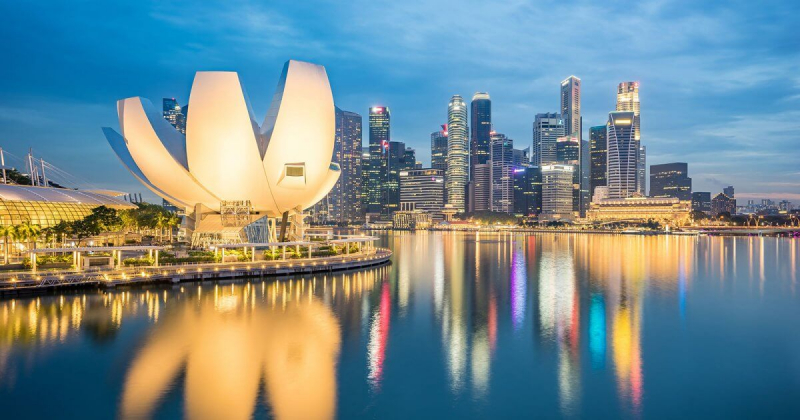
forevervacation.com 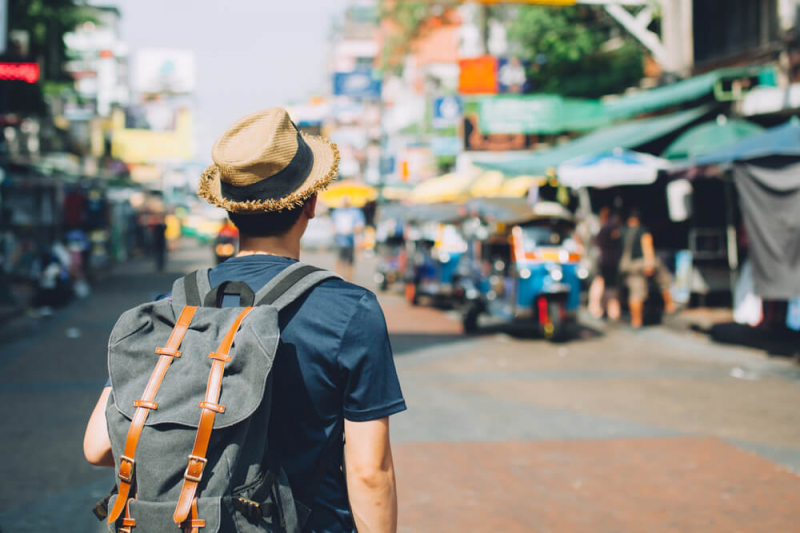
forevervacation.com -
In Singapore, there are several sites where you may get free WiFi. Shopping centers and museums, for example. On arrival, you can also sign up for a free account at Wireless@SGx. After registering, you can use the Internet at any of the many Wireless@SGx hotspots across the country, including libraries and museums. The service itself is a free app that, once set up, will keep you automatically connected during your stay.
However, as appealing as they are, the signal quality of such free services is frequently unstable, especially in congested areas such as Changi Airport and fast-food outlets. If this is a problem for you, go to a 7-11 convenience store and get a tourist SIM card instead. These are quite inexpensive and come in a variety of styles.
For example, in 2022, a Singtel tourist SIM card with 100 GB 4G local data will cost only 15 Singapore dollars. Some versions are also "EZ-Link" capable, which means they can be used to travel by public transportation. Overall, it's a good deal for convenience across the island.
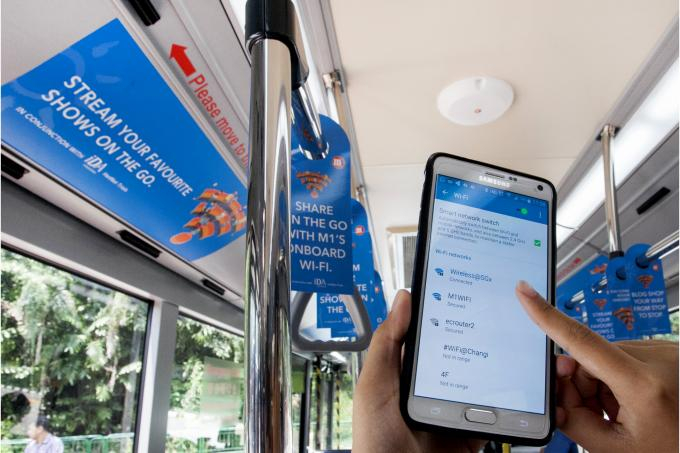
straitstimes.com 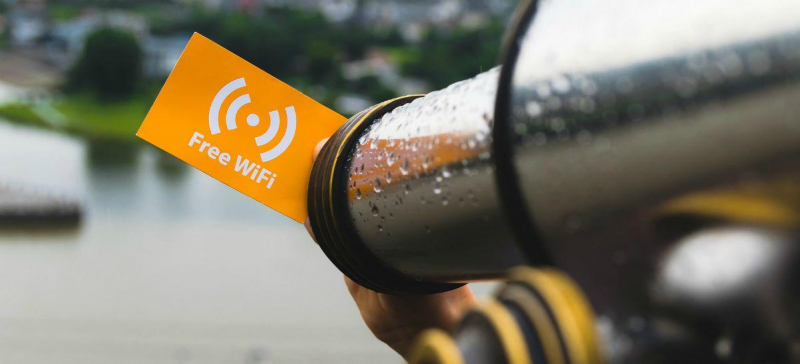
finance.yahoo.com -
This is definitely one of the top Things about Singapore You Should Know. In order to reduce public disturbances, Singapore enacted a series of harsh liquor control legislation in 2015. The following statutes apply:
- From 10.30 p.m. until 7 a.m., alcohol use is prohibited in all public spaces. From 10.30 p.m. to 7 a.m., retail establishments are not allowed to offer takeaway alcohol. Licensed pubs are not included in the definition of "public spaces."
- The laws in Geylang and Little India are more stringent. From 7 a.m. on Saturdays to 7 a.m. on Mondays, public drinking is prohibited at these locations. From 7 p.m. on the eve of a public holiday until 7 a.m. the next day, public drinking is prohibited. On weekends, shops in these two locations are not permitted to sell takeaway alcohol after 7 p.m.
These restrictions, as strict as they may appear, essentially state that you can only drink at licensed establishments during the hours in question.
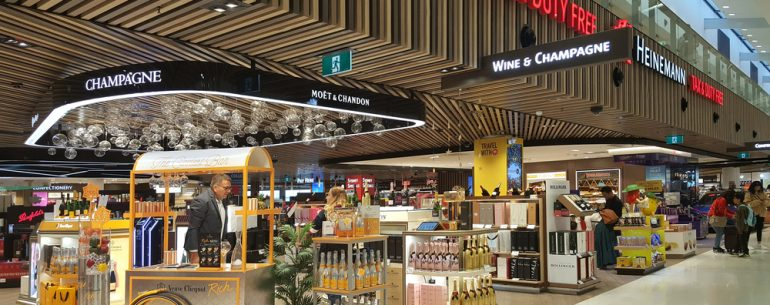
journeyz.co 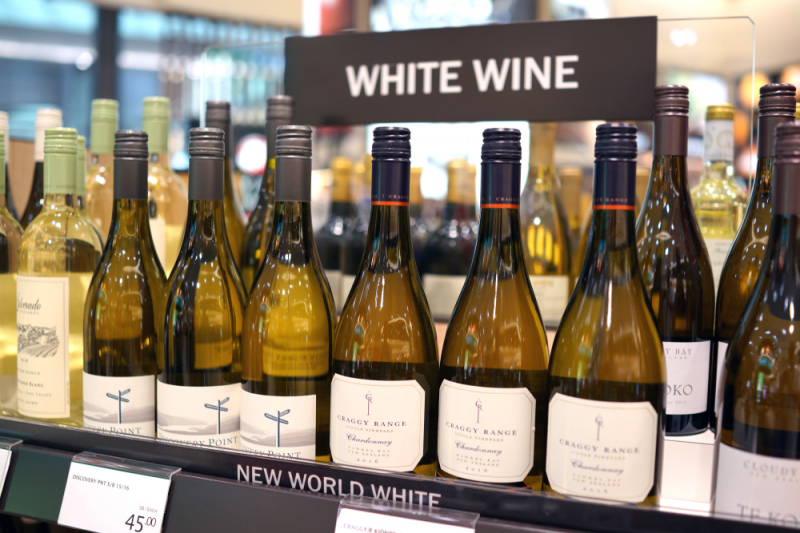
journeyz.co -
In Singapore, tap water is typically considered safe to drink. Water samples were collected from 15 taps across the island in a CNA Insider investigation done in 2019 - from eateries, retail centers, public restrooms, and HDB apartments. The results revealed that no germs were present in any of the samples. The concentrations of hazardous metal pollutants such as lead varied from 0.02 to 0.3 parts per billion (ppb). Thankfully, these results are well below the World Health Organization's recommended limit of 10 parts per billion.
Despite this, some trace chemicals used for disinfection, such as chlorine and sulfate, may still be present in tap water. Pipes may also rust over time as a result of wear and tear, allowing potentially dangerous particles to infiltrate the water supply.
You can obtain drinking water from Natural Springs Australia if you want to be extra cautious. You may enjoy clean, great-tasting spring water at any time of day with their water dispensers. Natural Springs Australia gets its spring water from Victoria's Black Hills mountains. You don't have to worry about trace metals or pollutants in your drinking water because it's fresh and free of contaminants. The spring water is taken straight from the source, retaining all of its natural mineral content and qualities. It's then filtered to eliminate any fine clay or pollutants before being ozone-treated to keep it bacteria-free when it's bottled.
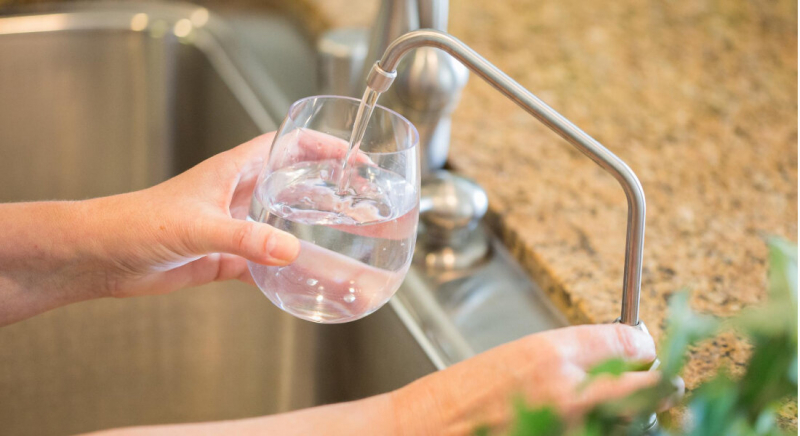
blueheale.sg 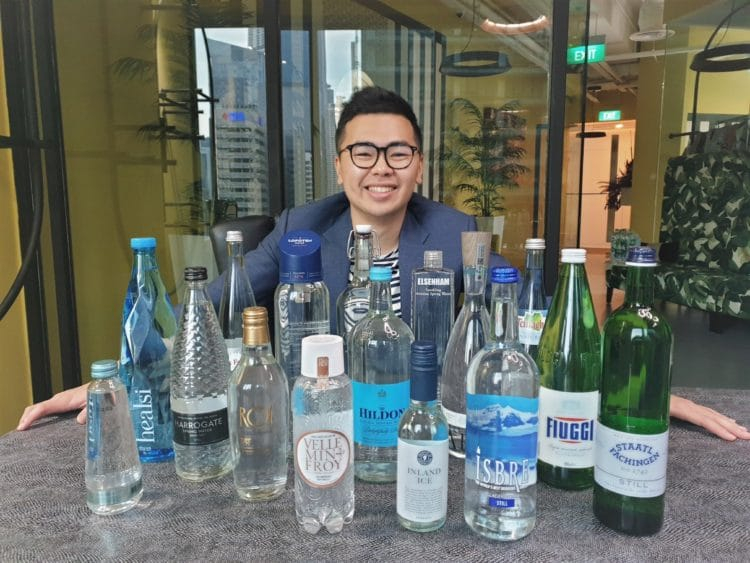
allabout.city -
Hawker centers, where hawker stalls first appeared during the mid-nineteenth century and were mostly made up of street food stalls serving a wide variety of foods, play an important role in Singaporean cuisine. Coolies, office employees, and those who did not cook at home were supplied cheap and fast cuisine by street vendors who set up shops along the side of the roadways using pushcarts or bicycles. Although street vendors provided cheap and quick meals to early Singapore immigrants, these booths were unsanitary due to a lack of supporting infrastructures such as waste disposal, a consistent supply of fresh water, and limited sanitation techniques. The Singapore government began enforcing additional laws and restrictions for street hawkers in the 1960s, and with the establishment of wet markets and hawker centers across the country, these vendors were shifted to more permanent venues.
Due to convenience, a broader choice of alternatives, and cost, Singaporeans prefer to dine at hawker centers, coffee shops, or food courts rather than restaurants while dining out. These hawker centers are common, inexpensive, and frequently contain dozens of stalls in the same complex, each with its own specialty dishes. Telok Ayer Market, Maxwell Food Center, Lau Pa Sat, and Newton Food Centre are all popular tourist hawker centers. Coffee shops are non-air-conditioned versions of food courts that may be found all over the island, mainly at the bottom of HDB flat blocks. Hawker centers are places where customers may sample a variety of various cultural foods all in one location. Singaporean culinary culture is defined by hawker centers or open-air food courts. Popular markets including Geylang's Old Airport Road Food Centre, Beach Road's Golden Mile Food Centre, and Chinatown's Maxwell Road Food Centre combine the finest of Chinese, Malaysian, and Indian cuisines to create uniquely Singaporean dishes. Kaya toast, chili crab, fish head curry, laksa, roti prata, and Hainanese chicken rice, which is widely considered to be one of Singapore's national cuisines, are some well-known Singaporean hawker or Kopitiam delicacies.
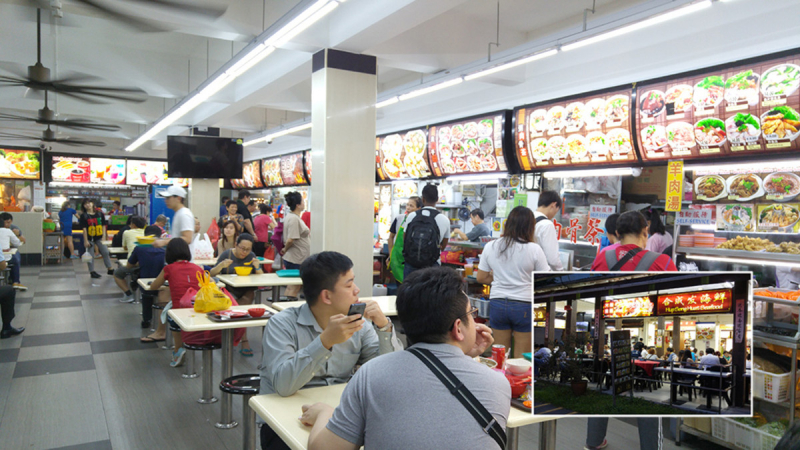
wanderwisdom.com 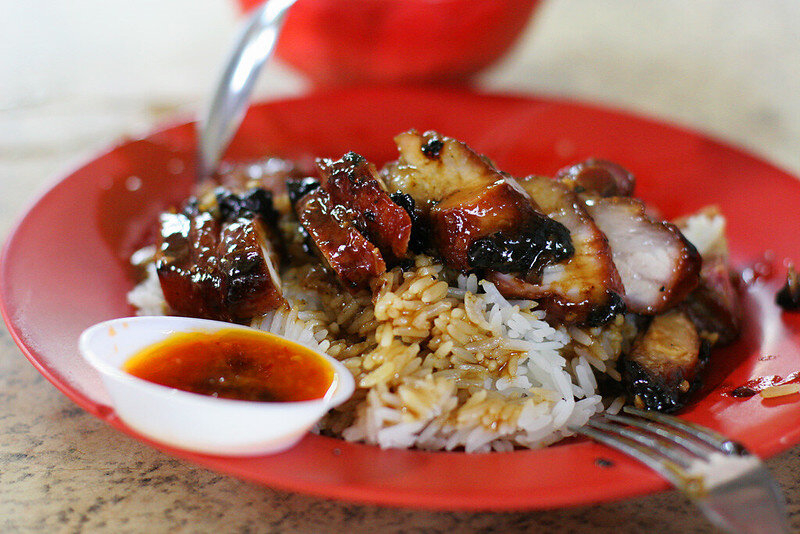
achefstour.com -
Although Singapore is a year-round destination, the months of December to June are ideal for visiting. The dry season in Singapore runs from February to April, and this is when the country experiences the least amount of rain, the lowest humidity, and the most sunshine. Singapore's weather is quite constant and pleasant enough for tourists to visit all year. The best time to visit Singapore is from July to November if you want to escape the crowds.
If you just want to sit back and enjoy Sentosa Island with a beach and outdoor activities right in front of you, the summer months of June to August are the perfect time to visit.
The Chinese New Year, which falls in either January or February, is one of Singapore's most important festivities. It is determined by the year's first full moon. The mid-autumn festivities, which take place in October, Hari Raja, which takes place in June, and Singapore's National Day, which takes place in August, are also worth attending.
If you're a shopaholic who wants to visit Singapore only for the purpose of shopping, go between June and August. The Great Singapore Sale is held at this time, making it the finest time to visit Singapore for shopping.
Because July and August are not very popular travel months in Singapore, you may be able to find some of the finest airfare and accommodation discounts. If you are a solitary traveler, you do not need to worry about the best time to visit Singapore because it has plenty to offer at all times of the year.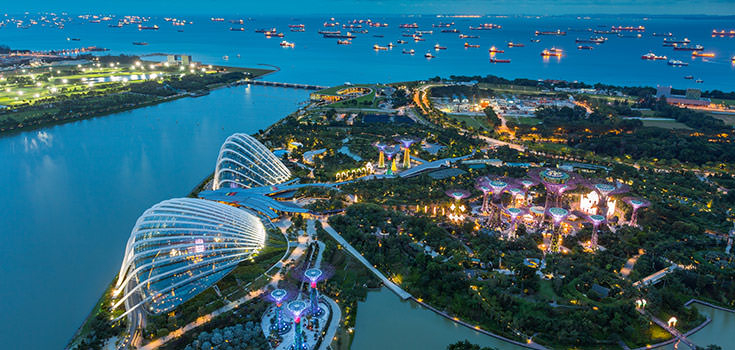
bookmundi.com 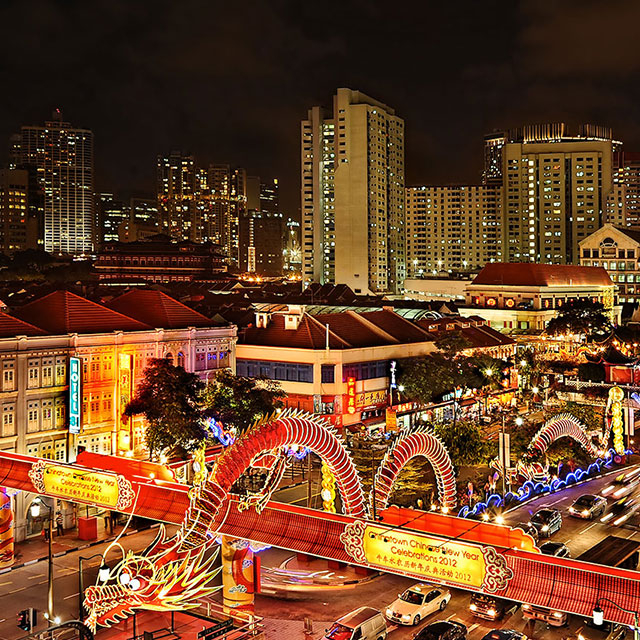
visitsingapore.com -
Did you know that in Singapore, eight out of eleven public holidays is religious and cultural celebrations1? Singapore is presently known as a vibrant melting pot of cultures, religions, and groups. This is definitely one of the top Things about Singapore You Should Know. Because of its full respect for human rights and equality, the country has attracted a large number of immigrants over the years. As a result, there is little doubt that numerous events and festivals are celebrated with fervor and vigor in Singapore.
When visiting Singapore, there are a number of events you should attend. Pongal, for example, is a four-day festival in Southern India. At the start of the auspicious month of Thai, Indians in Singapore likewise celebrate it with pomp and circumstance. This celebration honors the sun deity Surya, who is responsible for the harvest and all of life's riches. Various events and tournaments are held in Little India during Pongal. During this festival, people also exchanged gifts and donned new attire.
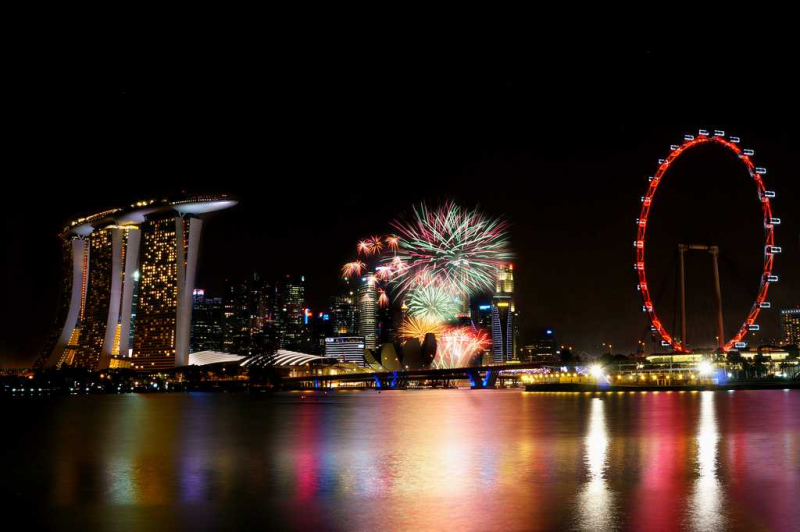
holidify.com 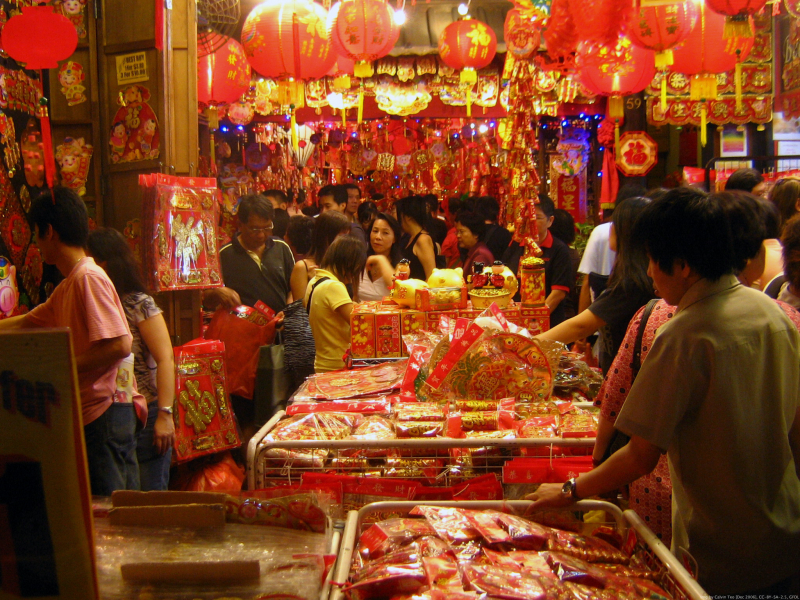
holidify.com












